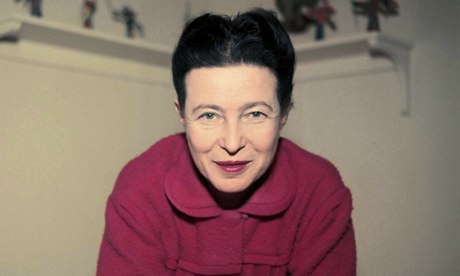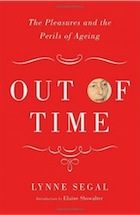“Some say the world will end in fire,
Some say in ice.
From what I've tasted of desire,
I hold with those who favor fire.
But if it had to perish twice
I think I know enough of hate
To say that for destruction ice
Is also great
And would suffice.”
― Robert Frost
(Book: https://amzn.to/3WDigkC)
多麗• 萊辛的《特別的貓》
超級好看!
超級好看!
作家Doris Lessing活了94歲。談到老年,她說:「年紀一大把足堪告白的秘密是-你只有形骸變化,其實啥都沒變。」老舊的皮囊羈囿不住狂騷的靈 魂;Lessing內力旺盛,筆鋒遒勁妙文不絕。人屆晚年,流年似水沾絲晦暗,故舊逐一離座,傷懷與孤獨感如暮靄四合,可憤青的老後,卻未曾氣短。
專研女性情慾的英國基進女性主義者Lynne Segal,本身也是心理學家,觀察到-少人能主動知覺自己年歲的老邁,這是aging神奇之處---這種心理與肉身的錯位感會尾隨歲數而累增。 Segal邁入初老近期就寫下Out of Time: The Pleasures and the Perils of Ageing 一書,想搞懂age gracefully意所何指?她探索很多創作、文化與學術作品剖析暮年的尊嚴、優雅與奧秘。
Segal 提到「社會高齡化」滋生的政經副作用是-世代敵意,上世代人容易成為替罪羔羊-尤其嬰兒潮世代,社會利益全佔盡吃乾抹淨,剩餘一個坑疤殘破的社 會強迫年輕人買單。而保守歐美政客藉機操弄年齡歧視,轉移選民對官商勾結、公共政策不作為之失能政權的監督與批判。上了年紀,Segal火氣稍歇,也無意 在新著頂撞時局,反現觀審老年意義的抒情慢板。她在Simore de Beauvoir的著作尋找靈感。Beauvoir 半百時,愛侶Sartre琵琶別抱另尋新歡,才女宛如落衰棄婦,但Beauvoir谷底生命逆轉勝---她結交新戀人,更積極投身文壇社運,出走大男人陰 影自己活出一片天,成就哲學家Beauvoir。Segal 書末留下一段話:” If old age is not to be “an absurd parody of our former’ life,” it is essential to “go on pursuing ends that give our existence meaning”, such as devotion to other people, causes and creative work. This may well be the secret to enjoying life at any age.”
Out of Time: The Pleasures and the Perils of Ageing, by Lynne Segal – review
Lynne Segal offers a powerful manifesto for dealing with the march of time

Lynne Segal’s account
of ageing contrasts sharply with that of Simone de Beauvoir, above, who
published an anguished memoir about growing old when she was in her 60s.
Photograph: Sipa Press/Rex
The mighty Simone de Beauvoir published Old Age
in 1970, when she was in her early 60s. A troubled, anguished and angry
testimony, it detailed her profound dismay at the sagging of the body;
the loss of looks (her own and the admiring glances of others), the
absence of desire and the unwilling and uncomfortable contemplation of
mortality. Not for her the basic philosophy of Woody Allen: "Old age
isn't so bad, when you consider the alternative."
In contrast, Lynne Segal's thoughtful analysis of ageing
offers a far more combative, zestful approach. It asks: when suffering
from "temporal vertigo", absorbing at once all the ages you have ever
been, and dealing with the inevitable loss of loved ones, how do you
accept the physical ravages and build on the experiences of the past, to
live fully in the present? What does it mean to age well?
Segal, now in her 60s, is a socialist feminist and anniversary professor of psychology and gender studies at Birkbeck College, University of London. For the past 30 years, she has fearlessly taken on some of the loopier ideas of feminism and contributed significantly to a more optimistic agenda for sexual politics. In books such as Is the Future Female?, Slow Motion: Changing Masculinities, Changing Men and Straight Sex: The Politics of Desire, she challenged the kind of essentialism that believes that women are somehow "nicer" than men and that, as sections of the sisterhood argued, men are incapable of change.
Social conditioning is, obviously, particularly potent when it comes to the business of growing old. And here is Segal's first challenge. Whom does she define as old? "Late midlifers"? "Early elderly"? At what point does an individual cease being surprised at the wrinkled, chipmunked face in the mirror and begin the period of critical self-reflection that surely must be one of the perks of ageing? What's certain is that the number of years that have passed is no guide in itself; as the writer Penelope Lively says in Moon Tiger: "Chronology irritates me."
Madonna wearily refuses to age, while women are now bearing children in a decade when their mothers were ploughing through the menopause. Old age for Dante began at 45; for Hippocrates, it meant the 50s. Now, 10 million Britons are over 65 and soon centurions will be the norm.
How we age is influenced by society's attitudes and currently "youthism" reigns, but it is also dictated by events in the shape of disease, desertion and unexpected isolation and deprivation. A fifth of those over 65 live in poverty, the majority of them women.
Segal's book is worth buying alone for the vim with which she sees off the "dim-witted" arguments of coalition minister David Willetts and historian Francis Beckett, among others, who insist that the baby-boomers have stolen all the booty and forfeited their children's future. Neoliberals, not the baby-boomers, have done the damage, Segal argues, and there are better ways to share the diminished spoils – a tax on corporate wealth, for one.
To help construct her guide for a "good" old age, Segal calls on an army of poets, writers, academics and activists, perhaps too many, when it's her voice the reader may seek. Her recommendations include remaining politically active (she quotes the inestimable John Berger, in his 80s: "…one protests… in order to save the present moment, whatever the future holds"); valuing interdependency; treasuring connections with those who are younger; seeking out joy and ignoring all instructions to opt for invisibility and celibacy.
Until her 40s, Segal and her son lived in a collective in her large house in north London. Then she cohabited more conventionally with her male partner; she was 15 years older and he left her for a younger woman. Now, she has a female partner. Segal quotes from June Arnold's novel, Sister Gin, in which Su, in her 50s, falls for Mamie, a woman in her 80s. "My darling's face has been walked on by life," Su says, as a valediction, not a complaint.
Most of the cast that Segal rallies to explore her theme share an experience of beauty and/or fame, among them the poet Robert Frost ("No memory having starred/ Atones for later disregard/ or keeps the end from being hard"). The majority of those growing older will face other challenges. For millions, especially, perhaps, feminists, paid work, a career, has played a significant part in providing motivation and in forging an identity. Will retirement mean an erosion of a core sense of self? Or, looking back, is it possible to build on aspects of yourself you were never encouraged to value?
Segal quotes the remarkable Lou Andreas-Salomé, who, among her many achievements, became a psychoanalyst after the age of 60. "All my life I have done nothing but work," she said, near death. "And really, when you come to think of it… why?"
A question that could revolutionise ageing and that deserves an answer long before one runs out of time.
- Tell us what you think: Star-rate and review this book
Segal, now in her 60s, is a socialist feminist and anniversary professor of psychology and gender studies at Birkbeck College, University of London. For the past 30 years, she has fearlessly taken on some of the loopier ideas of feminism and contributed significantly to a more optimistic agenda for sexual politics. In books such as Is the Future Female?, Slow Motion: Changing Masculinities, Changing Men and Straight Sex: The Politics of Desire, she challenged the kind of essentialism that believes that women are somehow "nicer" than men and that, as sections of the sisterhood argued, men are incapable of change.
Social conditioning is, obviously, particularly potent when it comes to the business of growing old. And here is Segal's first challenge. Whom does she define as old? "Late midlifers"? "Early elderly"? At what point does an individual cease being surprised at the wrinkled, chipmunked face in the mirror and begin the period of critical self-reflection that surely must be one of the perks of ageing? What's certain is that the number of years that have passed is no guide in itself; as the writer Penelope Lively says in Moon Tiger: "Chronology irritates me."
Madonna wearily refuses to age, while women are now bearing children in a decade when their mothers were ploughing through the menopause. Old age for Dante began at 45; for Hippocrates, it meant the 50s. Now, 10 million Britons are over 65 and soon centurions will be the norm.
How we age is influenced by society's attitudes and currently "youthism" reigns, but it is also dictated by events in the shape of disease, desertion and unexpected isolation and deprivation. A fifth of those over 65 live in poverty, the majority of them women.
Segal's book is worth buying alone for the vim with which she sees off the "dim-witted" arguments of coalition minister David Willetts and historian Francis Beckett, among others, who insist that the baby-boomers have stolen all the booty and forfeited their children's future. Neoliberals, not the baby-boomers, have done the damage, Segal argues, and there are better ways to share the diminished spoils – a tax on corporate wealth, for one.
To help construct her guide for a "good" old age, Segal calls on an army of poets, writers, academics and activists, perhaps too many, when it's her voice the reader may seek. Her recommendations include remaining politically active (she quotes the inestimable John Berger, in his 80s: "…one protests… in order to save the present moment, whatever the future holds"); valuing interdependency; treasuring connections with those who are younger; seeking out joy and ignoring all instructions to opt for invisibility and celibacy.
Until her 40s, Segal and her son lived in a collective in her large house in north London. Then she cohabited more conventionally with her male partner; she was 15 years older and he left her for a younger woman. Now, she has a female partner. Segal quotes from June Arnold's novel, Sister Gin, in which Su, in her 50s, falls for Mamie, a woman in her 80s. "My darling's face has been walked on by life," Su says, as a valediction, not a complaint.
Most of the cast that Segal rallies to explore her theme share an experience of beauty and/or fame, among them the poet Robert Frost ("No memory having starred/ Atones for later disregard/ or keeps the end from being hard"). The majority of those growing older will face other challenges. For millions, especially, perhaps, feminists, paid work, a career, has played a significant part in providing motivation and in forging an identity. Will retirement mean an erosion of a core sense of self? Or, looking back, is it possible to build on aspects of yourself you were never encouraged to value?
Segal quotes the remarkable Lou Andreas-Salomé, who, among her many achievements, became a psychoanalyst after the age of 60. "All my life I have done nothing but work," she said, near death. "And really, when you come to think of it… why?"
A question that could revolutionise ageing and that deserves an answer long before one runs out of time.



沒有留言:
張貼留言